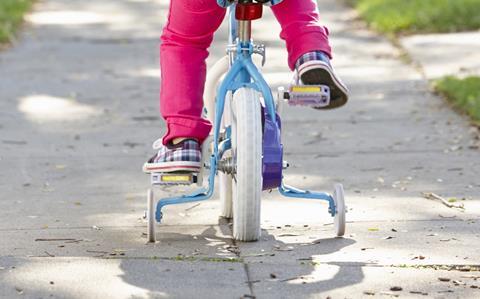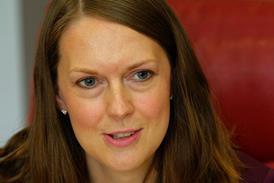NSPCC’s latest report highlights a worrying misunderstanding of children’s complex mental health needs, writes Tim Smith

The latest report from the National Society for the Prevention of Cruelty to Children is concerning and draws attention once again to the need for mental health services for children and young people to be designed and resourced so that they address the full range of needs in the community.
The NSPCC report claims that 82 per cent of clinical commissioning groups are not properly planning for the needs of vulnerable children.
Many children who have suffered abuse or neglect will have severe and complex mental health, emotional, social and behavioural difficulties and the reality is that we do not know accurately how many children have this level of need, but we do know that there are high numbers and that mental health services are not funded or designed to sufficiently provide the services they require.
Reality speaks
We need to look harder at the reality of children’s complex mental health needs because the frontline experience of child and adolescent psychotherapists is that they are much more prevalent than is widely recognised.
In response to NSPCC’s story, an NHS England spokesperson stated that the NHS has committed to treating an extra 345,000 children by 2023 and “is developing new services to treat 6,000 highly vulnerable children”. These are positive moves but funding also needs to be focussed on specialist CAMHS.
Children who are well-held by their professional networks, supported by specialist CAMHS, tend to avoid more expensive inpatient admissions, are more able to make use of the care provided to them and thus more likely to have better long-term outcomes
CCGs and trusts must commit to meeting the needs of vulnerable children with complex needs by investing in specialist multidisciplinary teams in CAMHS to offer a range of treatments and interventions. Specialised clinicians with sufficient levels of training need to be at the forefront of planning, assessment and treatment, through consultation, supervision and direct work with these vulnerable young people, so that the full picture of need is understood and attended to.
I welcome the government’s setting up of Mental Health Support Teams in schools but the practitioners working in these will not be equipped to meet the needs of highly vulnerable children who have been abused and traumatised. NHS England should ensure that specialist services are also resourced so that children and young people with really complex needs get the help they require.
It is vital that the specific needs of the most unwell and vulnerable children are recognised and that investment is put into their care at the same time as services are expanded to meet the rise in mental health problems and also address the long-standing shortfall in funding and services for children, young people and their families. This implementation needs to be alongside investment in social care, including adult social care addressing the needs of parents.
There is already high turnover and low staff retention in CAMHS and this will only get worse if CAMHS are not funded adequately and staffed with specialist clinicians equipped to deal with the mental distress that work with severely distressed children and young people entails.
Child and adolescent psychotherapists are trained to work with the most complex children and young people. The profession has a very high retention rate as they are trained to work with patients with high levels of disturbance.
It is one profession that needs to be prioritised as part of multidisciplinary CAMHS teams offering a range of interventions, including both brief and longer term treatments that are tailored to meet the complex and enduring needs of children and young people with severe difficulties.
Teams also need to be equipped with professionals who are able to work with parents and carers and with the complex, and often disrupted, networks of care around children whose behaviour and ways of relating may be challenging to those who look after them in a range of settings.
Investment in more specialist interventions for the most complex young people is a smart saving, as over time it decreases pressure on more expensive services, such as accident and emergency departments, which are currently dealing with a rise in the number of young people presenting with deliberate self harm.
Children who are well-held by their professional networks, supported by specialist CAMHS, tend to avoid more expensive inpatient admissions, are more able to make use of the care provided to them and thus more likely to have better long-term outcomes.





























No comments yet